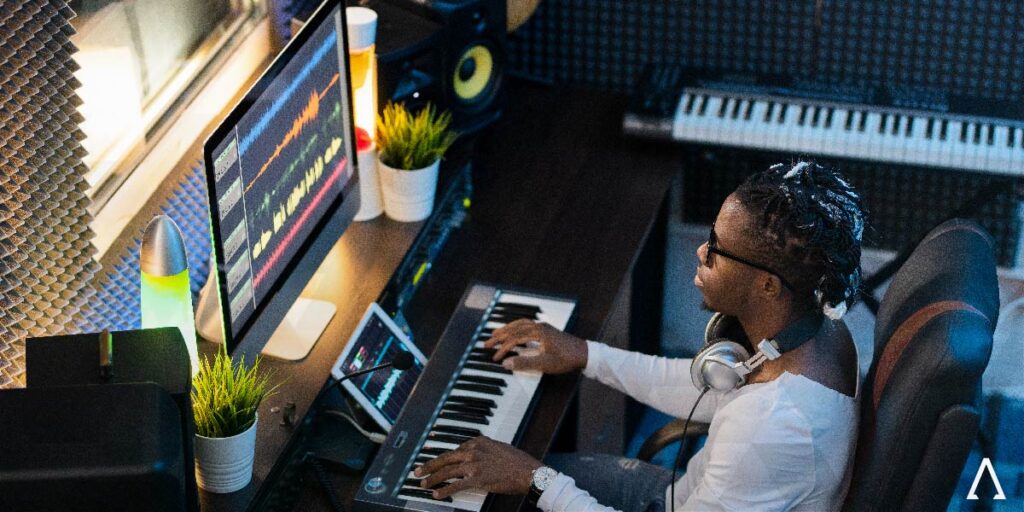In author Leslie Jamison’s book The Recovering: Intoxication and Its Aftermath, she talks about visiting the bars where some of her favorite writers drank. Like many others, she’d internalized the myth that great writers, artists, and musicians’ art is fueled by their addictions.
She later found out that many of her favorite authors wrote their best work after they got sober. The author Stephen King, who himself has been sober for decades, said in his memoir On Writing, “The idea that creative endeavor and mind-altering substances are entwined is one of the great pop-intellectual myths of our time.”
How Does Addiction Change Your Brain?
Addiction affects the way your brain functions. For instance, long-term alcohol use can cause deficiencies in the fibers that carry information between brain cells. It can lead to impaired memory and learning problems.
The brain doesn’t work anywhere near its full potential during active addiction, meaning the work you do then is not your best. People often think it is—and feel creatively energized when they’re using—because the dopamine floods of active addiction make things seem more interesting.
After a couple years sober, I noticed astounding changes in the way my brain worked. It continues to feel sharper each year; things that were huge challenges in active addiction are no sweat. I feel better all around, giving me more energy to work on projects. Addiction eats up your time.
Jamison also points out in The Recovering that sobriety expanded her worldview. She ties this expansion to shares at AA meetings, which taught her to pay attention to others’ stories. This is true for many people—but recovery in general opens up your world.
Sobriety has fundamentally changed the way I create and think, making me hungry to learn; I’m not always caught up in the dramas of my own life. Recovery makes you less self-centered, which tends to make art a lot more interesting.
Is There a Connection Between Creativity and Addiction?
When asked if there is a link between creativity and addiction, Johns Hopkins School of Medicine neuroscientist David Linden gave a resounding no. But he went on to explain that people who are creative might be more prone to addiction.
Linden said, “You don’t become addicted because you feel pleasure strongly. On the contrary, addicts seem to want it more but like it less…Genetic variants make for a low-functioning dopamine system, specifically D2 receptors. If you carry those variants, you are more likely to be more risk-taking, novelty-seeking, and compulsive. None of which are explicitly creative, but they are things that get to creativity.”
The myth that addiction brought us our best artists confuses correlation with causation. The qualities that make people creative may be some of the same ones that cause substance abuse; that doesn’t mean the substances are what make their work good. People who produce creative work while in the throes of addiction are doing so despite their addiction, not because of it.
In The Recovering, Jamison talks about the stereotypes we have about—and varying levels of empathy we afford—different types of people with addictions. “Alcoholics are tortured geniuses,” she said. “Drug addicts are deviant zombies. Male drunks are thrilling. Female drunks are bad moms. White addicts get their suffering witnessed. Addicts of color get punished.”
While different drugs affect the body differently, everyone with an addiction is experiencing the same changes in the brain. But the way people are treated, and the resources they have access to, have a major effect on their recovery outcomes. The stories we tell about a person’s substance use has a profound impact.
The “tortured genius” myth is dangerous for people who might fear losing a part of themselves in recovery. The idea that Black people or People of Color with addictions are less deserving of support creates mass incarceration where there should be treatment. (TruHealing Centers created our Social Justice Scholarship—which funds the full continuum of addiction treatment for Black people experiencing substance use disorders—to respond to this phenomenon. Apply here.)
Addiction is a chronic brain disease no matter who has it, not a means of accessing higher consciousness. The way sobriety expands your world—and gives you back your time—offers a lot more opportunities for creativity.
If you are struggling with a substance use or mental health disorder, there is help and hope. TruHealing Centers offers high-quality treatment for addiction and mental health disorders in facilities across the country. At our centers, we offer expressive therapy to help you connect to creativity sober. Call an admissions specialist at 410-593-0005.








